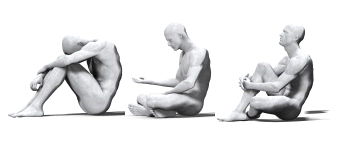Integrative Cognitive Behavioural Therapy is a therapeutic approach blending a number of evidence-based cognitive behavioural approaches including CBT, REBT, ST together with MCT and Mindfulness within a strong, open and collaborative therapeutic relationship.
- CBT (Cognitive Behavioural Therapy) is an evidence-based, NICE approved, psychological treatment for emotional and personality disorders. It is a ‘talking and doing’ therapy in which talking is used to restructure unhelpful interpretations and beliefs about ourselves, others, and the world; while ‘doing’ allows us to challenge existing thinking and behaviour then test and adopt more functional alternatives.
- REBT (Rational Emotive Behaviour Therapy) is based on the theoretical ideas of CBT but focuses directly on philosophical change by identifying and modifying underlying dysfunctional core beliefs. REBT has a model of psychological good health which many clients find helpful.
- ST (Schema Therapy) is an integrated therapeutic approach based on the CBT model, which it extends to include the emotional reprocessing of disturbing past events using imagery and the therapeutic relationship itself. ST is particularly useful where personality issues and abuse are involved in complex disorders.
- MCT (Meta-Cognitive Therapy) is based on the concept that it not so much the content of our thoughts and beliefs that is relevant to emotional disturbance, but rather our thinking strategies, our beliefs about our thoughts and the attention which we pay them. This approach fits well with Mindfulness, which provides a way of changing our relationship to our thoughts through meditation techniques.
- Mindfulness is a meditation approach based on Buddhist mediation techniques which provides both a helpful support to other cognitive-behavioural approaches but also has many benefits of itself in promoting happiness and satisfaction in life.
Therapy is based on a rich and individualised model that reflects out joint understanding of the problem. At the beginning of therapy we will discuss the problem you wish to address and see how the therapeutic model may best be used to help and agree a way forward. In most cases therapy is short term, typically 6-12 sessions. Longer term therapy may be appropriate in some circumstances. We will discuss this at the beginning of therapy.
